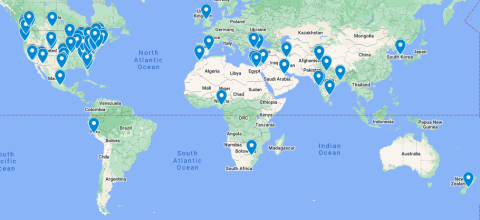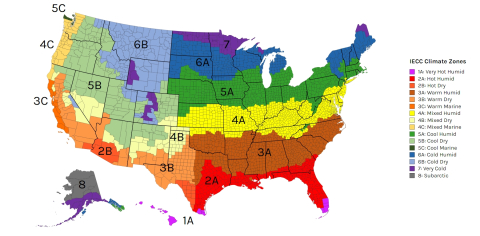RSS




DOE released the 179D Portal, which hosts two free tools to estimate potential federal tax deductions for installing eligible energy-efficient technologies in commercial buildings.
DOE-Google Collaboration Will Help Consumers Identify Qualified Technicians for Home Energy Upgrades
The U.S. Department of Energy is collaborating with Google to highlight contractors with Energy Skilled-recognized credentials, making it easier for homeowners to select qualified local technicians.
EERE announced today that Michael Furze has been selected to serve as the director of EERE’s Building Technologies Office.
The U.S. Department of Energy (DOE) seeks to accelerate innovative solutions to address new load growth from computing, manufacturing, buildings, and transportation through use of a Partnership Intermediary Agreement (PIA).
DOE has published the second round of CALiPER test results for germicidal ultraviolet products. These Round 2 results further demonstrate the importance of education and industry standards in the GUV product industry.

122 teams from 93 collegiate institutions are going for gold as competition begins for the U.S. Department of Energy (DOE) Solar Decathlon® 2025 Design Challenge, DOE’s longest-running student competition.

As More Americans Seek Home Energy Upgrades, New DOE Resources Will Enable Easier Access to the Historic Money Saving Incentives Provided by the Biden-Harris Administration’s Investing in America Agenda

The 2021 IECC provides guidance to ensure the energy-efficient construction of new residential buildings and building retrofits.
The application period has opened for the Office of Technology Transitions Fiscal Year 2025 Core Laboratory Infrastructure for Market Readiness Lab Call. DOE’s Building Technologies Office is one of 14 DOE offices participating in this year’s lab call.

DOE announced 25 projects across 17 states to research and develop high-impact building technologies and practices aimed at reducing peak demand on the electric grid, enhancing resilience, and lowering energy costs.

